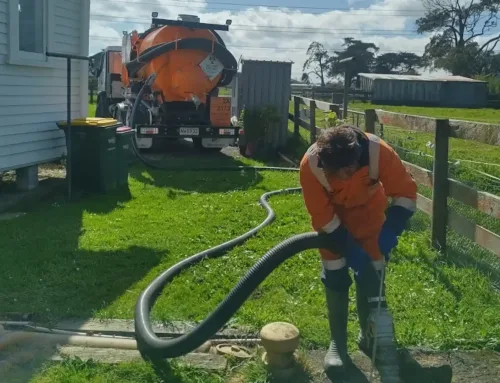An Unbiased View of Reclaim Waste
Table of ContentsHow Reclaim Waste can Save You Time, Stress, and Money.The 10-Second Trick For Reclaim WasteIndicators on Reclaim Waste You Should KnowNot known Factual Statements About Reclaim Waste Facts About Reclaim Waste Revealed
Check out the types, incidents, and types of fluid waste. Domestic sewage waste describes the waste and products from a residential sewage-disposal tank. This kind of waste is developed by humans in houses, schools, and various other structures. This only includes septic containers that have a drain field. The proper management and disposal of residential sewage waste need fluid waste to be moved to a sewer therapy plant where the appropriate approaches and tools are related to detoxify and deal with waste.
Industrial waste commonly includes potential threats, such as combustible materials or a combination of liquid and strong waste items, and needs an advanced and comprehensive disposal procedure. The disposal of commercial waste typically entails the purification of waste prior to transportation to make sure secure and proper disposal. Industrial waste is created from by-products and overflow of commercial processes and manufacturing.
This type of waste can not use the very same sewage monitoring transport or procedures as septic or industrial liquids. The hazardous waste management process calls for the examination and testing of fluid waste prior to it undertakes the disposal procedure (liquid waste disposal). Drainage waste is the fluid waste that originates from drainage and excess stormwater in very booming locations or cities
Drainage waste can cause contamination and flooding if not managed effectively. Discover more about drain cleansing and waste monitoring. Making certain correct waste administration can protect against calamities and lower ecological injury. Both individuals in residential settings and experts in industrial or production sectors can benefit from recognizing the processes and policies of liquid waste monitoring.
Some Known Details About Reclaim Waste
Call PROS Providers today to discover our waste administration and disposal solutions and the appropriate methods to look after the fluid waste you create.
Do you understand what takes place to your water when you disengage, flush the toilet or drain pipes the cleaning maker? No? Well, it's worth recognizing. This so-called 'wastewater' is not only an important resource but, after treatment, will certainly be released to our land, rivers or the sea. Used water from commodes, showers, baths, kitchen sinks, laundries and commercial processes is known as wastewater.

water utilized to cool down machinery or tidy plant and devices). Stormwater, a kind of wastewater, is overflow that streams from farming and city areas such as roofing systems, parks, yards, roads, paths and seamless gutters into stormwater drains pipes, after rain. Stormwater streams neglected straight to neighborhood creeks or rivers, ultimately getting to the ocean.
Not known Details About Reclaim Waste
In Queensland, a lot of wastewater is treated at sewage therapy plants. Wastewater is carried from residential or commercial sites through a system of drains and pump terminals, referred to as sewerage reticulation, to a sewage therapy plant. Regional governments construct, preserve and run most sewer treatment plants. Operators are certified under the Environmental Management Act 1994 to discharge treated wastewater at an acceptable ecological standard into waterways.
The Division of Natural Resources encourages neighborhood governments about handling, operating and keeping sewage systems and therapy plants. In unsewered areas, city governments may require homeowners to set up specific or house sewer treatment systems to treat residential wastewater from commodes, cooking areas, washrooms and washings. The Department of Natural Resources authorizes the usage of family systems when they are shown to be effective.
Most stormwater gets no treatment. In some brand-new communities, therapy of some stormwater to remove trash, sand and gravel has actually started using gross toxin catches. Wastewater treatment takes place in four phases: Gets rid of solid issue. Larger solids, such as plastics and various other things incorrectly discharged to sewers, are eliminated when wastewater is gone through screens.
Uses little living microorganisms understands as micro-organisms to break down and get rid of remaining liquified wastes and fine particles. Micro-organisms and wastes are integrated in the sludge.
The Best Guide To Reclaim Waste
Nutrient elimination is not readily available at all sewage treatment plants because it requires pricey specialized tools. Clear fluid effluent created after treatment may still contain disease-causing micro-organisms - liquid waste removal.

Many wastewater moves right into the sewerage system. over at this website Under the Act, regional governments administer authorizations and licences for eco pertinent activities (ERAs) including wastewater releases that may have a local influence.
The Single Strategy To Use For Reclaim Waste
Or else, samples are considered laboratory evaluation. Usually lots of tests are needed to develop the degrees of each of the various toxins such as oils, heavy metals and pesticides in water. Surveillance provides factual details regarding water quality and can confirm that licence problems are being satisfied. The info acquired with monitoring supplies the basis for making water quality decisions.
Comments on “Reclaim Waste for Dummies”